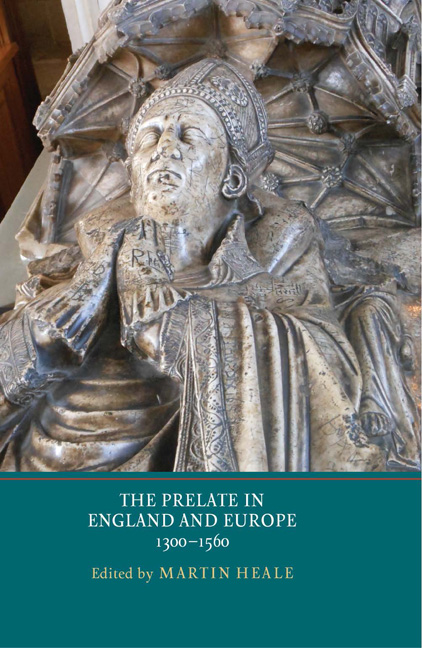Book contents
- Frontmatter
- CONTENTS
- List of Illustrations
- List of Contributors
- Preface and Acknowledgements
- List of Abbreviations
- Introduction
- Part I Prelates and Power
- Part II Patronage and Learning
- Part III Identity and Display
- Part IV Attitudes towards Prelacy
- Monastic Attitudes to Abbatial Magnificence in Late Medieval England
- Lollard Views on Prelates
- Index of People and Places
- Index of Subjects
- YORK MEDIEVAL PRESS: PUBLICATIONS
Lollard Views on Prelates
from Part IV - Attitudes towards Prelacy
Published online by Cambridge University Press: 05 November 2014
- Frontmatter
- CONTENTS
- List of Illustrations
- List of Contributors
- Preface and Acknowledgements
- List of Abbreviations
- Introduction
- Part I Prelates and Power
- Part II Patronage and Learning
- Part III Identity and Display
- Part IV Attitudes towards Prelacy
- Monastic Attitudes to Abbatial Magnificence in Late Medieval England
- Lollard Views on Prelates
- Index of People and Places
- Index of Subjects
- YORK MEDIEVAL PRESS: PUBLICATIONS
Summary
Whoeuere desiriþ prelacie in erþe shal fynde shenshipe in heuene, and he þat treetiþ of prelacie, þat is bisieþ hym to gete prelacie, shal not be rikenid among þe seruauntis of Crist.
[B]y þis sentence may men se hou þis prelacye is perelous for it is not fully groundid in Crist ne in oþer of his lawis.
Lollard opinion on ‘prelates’ was overwhelmingly governed by one fact: the term prelatus and its related noun prelatio are not to be found in the Vulgate text of the Bible. Terms that can be found in that text, and whose meaning might be thought close to those, are episcopus and episcopatum. Whatever the obscurity in detail of Wyclif's own conception of the ideals for which the Church in this world should aim, and from which the contemporary Church had so largely fallen away, it is clear that the basis of his conception and that of his followers was the model of the early Church set out in the gospels and the epistles. It is worth pausing on this linguistic point at the start of this discussion. The etymology of prelatus is transparent and unequivocal: it is the past participle of classical Latin praeferre, itself meaning simply ‘to bring forward’ in both material and abstract senses; the past participle as a noun can be traced from a date well before Wyclif in the sense of someone who has been advanced.
- Type
- Chapter
- Information
- The Prelate in England and Europe, 1300–1560 , pp. 277 - 294Publisher: Boydell & BrewerPrint publication year: 2014



